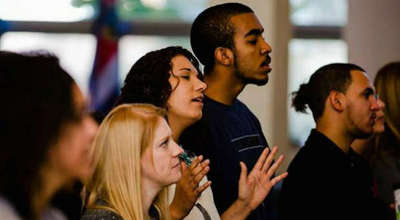The Real Reason There’s So Much Unchecked Sin in the Church
The gospel is for everyone. All sinners are welcome—liars, thieves, whoremongers, prostitutes, murderers, homosexuals, drunkards and drug addicts. The poor, the downtrodden, the broken-hearted, the outcast and the rejects of society are all welcome.
The gospel is also for those who appear sweet and nice but are full of inward vice. And let’s not forget the self-righteous, religious citizens, who also outwardly appear beautiful, but internally are dead in their trespasses and sins—they, too need salvation. The gospel is also for the professional people, such as doctors, lawyers and successful business people who seem to have it all together, but inwardly are full of dead men’s bones.
The gospel of Jesus Christ excludes no one and puts the highest value on humanity than any other religion ever known to mankind.
But once a sinner is saved and becomes a member of the body of Christ in a local church, the fellowship is no longer all-inclusive. There was a certain standard established by the early apostles to remain a part of the Christian fellowship. Anyone practicing a lifestyle of sin was to be avoided and rejected, but only after relational steps had been taken in an attempt to bring them to repentance and restoration (Matt. 18:15-17).
Immoral persons were not permitted in the fellowship (1 Cor. 5:9). Nor were those who were unruly and walked disorderly (2 Thes. 3:6). Domineering and sectarian leaders were excluded (3 John 9-11). Those who defiled their separation from the world were excommunicated (Rev. 3:15-16). Fellowship was also based on believing and receiving the doctrine of Christ (2 John 9-11).
Today this sort of divine discipline is clearly missing from church practice. Many don’t understand the ramifications of its neglect or how to employ it. Yet in the early days of the church, it was used to preserve the purity and unity of the body of Christ. It was enforced by mature, authorized ministers and a church filled with the love of God who had a single eye toward the glory of God. Also, it was only exercised when other means had been exhausted, and such cases were rare.
Nevertheless, beginning with the first case of Ananias and Sapphira, when divine discipline was exercised, we see a great fear coming on the church that brought a halt to any such sinful behavior or serious misconduct in others (Acts 5:1-11). When believers recognize the supernatural element in divine authority, they will not be so reckless and irresponsible in their behavior. Granted, the number of cases where this sort of divine judgment was exercised was small, but it was used as a means to purify the church and preserve its unity.
Believers who would hastily pronounce divine judgment on others should be warned against the danger of using any gift of God for vengeance or vindication. Unfair or unjust discipline that is applied for selfish reasons is contrary to the will of God and will not work. The church is imperfect and there will always be immaturity and carnality manifested among the saints. However, when a serious situation arises that threatens the purity and unity of the church, immediate action should be taken.
“Assuredly, I say to you, whatever you bind on earth will be bound in heaven, and whatever you loose on earth will be loosed in heaven” (Matt. 18:18).
In such serious cases as the man in 1 Corinthians 5 who was committing incest with his stepmother, or the two men, Hymenaeus and Philetus, who denied the resurrection and were overthrowing the faith of some (2 Tim. 2:17-18), God has given the church supernatural authority to bind and loose and keep the church free of desecration.
Could the absence of this type of divine discipline in the church today be the reason she is so divided and defiled, and commands so little respect from the world? Could the reason this discipline is not being applied when necessary also be due to the shortage of godly, mature leadership in the church?
I propose we look at what Scripture says on this important topic with fresh, new eyes and a teachable spirit that is ready to receive the Holy Spirit’s enlightenment.
Bert M. Farias, revivalist and founder of Holy Fire Ministries, is the author of several books including the newly released My Son, My Son—a beautiful father-son book co-written with his son Daniel for the purpose of training up a holy generation. He is also the co-host of the New England Holy Ghost Forum, a school of the Spirit. Follow him at Bert Farias and Holy Fire Ministries on Facebook or @Bertfarias1 on Twitter.














































